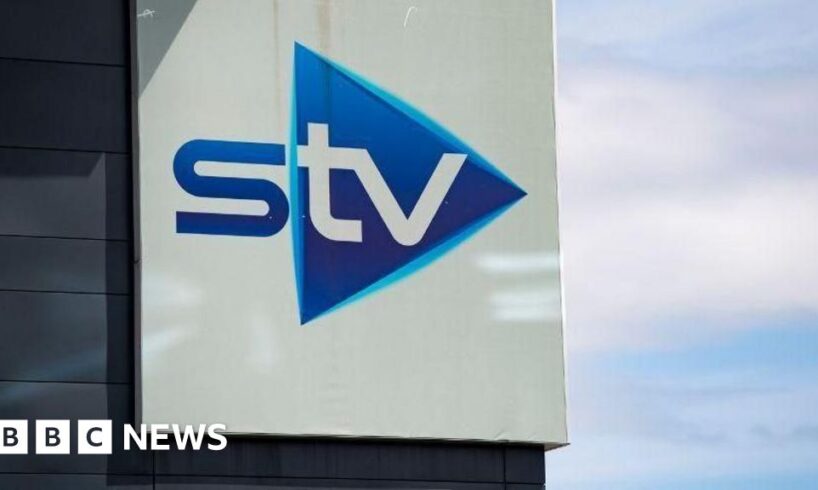
Jamie McIvorScotland news correspondent
SNS
If ITV sells its broadcasting business to Sky it would have profound implications for British broadcasting.
The UK’s most popular commercial channel ITV1 – which carries significant public service obligations unlike most other commercial channels – would become part of a multinational business.
But the implications of any deal for viewers in Scotland are much less clear.
The part of ITV which may be sold, the media and entertainment division, runs the company’s tv channels such as ITV1, ITV2 and ITV3 as well as the streaming service ITVX.
But ITV plays a different role in the marketplace in most of Scotland.
ITV1 is not broadcast in central and northern Scotland.
It is replaced by STV, although most of its programmes are bought in from ITV1 through an affiliation deal.
Similarly, ITVX does not carry the same range of content in central and northern Scotland.
ITV1 content, such as Emmerdale and Coronation Street, is available in most of Scotland through the STV Player instead.
Viewers in Dumfries and Galloway and the Scottish Borders are served by ITV1, as ITV owns the former Border TV, and can also access the full ITVX service.
There would naturally be interest there in whether a new owner would maintain the existing regional news service or ask the regulator for changes.
However, ITV’s smaller channels are directly available in the whole of Scotland.
It’s a slightly complex arrangement rooted in history.
Alamy
ITV1 and its parent company ITV plc are descended from the old confederation of regional broadcasters which were collectively known as Independent Television or ITV for short.
Companies such as Granada TV and Anglia once held regional franchises to provide the only commercial tv service in their area.
In the face of growing competition, the regional companies based in England and Wales gradually merged with each other to create ITV plc just over 20 years ago.
ITV plc later acquired Channel TV in the Channel Islands and UTV in Northern Ireland.
STV remains an entirely separate company but it still works closely with ITVplc.
Channel 3 broadcasters are still expected to work together as a network.
In commercial terms, the vast majority of the most popular and lucrative programmes shown by STV come from ITV1.
Clearly if a new owner made any significant changes to the network schedule – perhaps increasing or cutting the budget for network content or changing the arrangements for providing the national news – there would be knock on implications for STV viewers.
But fundamentally both STV and ITV plc are facing exactly the same challenges just now.
Audiences for traditional linear tv are dropping. Advertising revenue is falling – both because of falling ratings and wider economic challenges.
Separate news service row
Both ITV and STV’s businesses are split into two.
One part of the business deals directly with the public, as it runs the tv channels and the streaming service.
The other makes programmes, some of them for rival broadcasters and streamers.
STV has been hit recently by a drop in advertising revenue and commissions.
Its share price fell significantly and the company is now worth barely £50m. It is trying to save £3m by the end of next year.
The company has been strongly condemned by Scottish politicians over its proposals to stop providing a separate news service for the north of Scotland.
Regulator Ofcom is due to start a consultation on whether to allow this soon.
If ITV’s channels and streaming service are sold to Sky, would Sky be happy to let the current relationship between STV and ITV continue?
Or would a multinational company want full access to the Scottish market?
Would it contemplate offering to buy STV’s tv channel and the STV Player? Or perhaps even bid for STV as a company?
The low share price could certainly make the assets seem attractive to a buyer. But absolutely nothing is inevitable.
For thirty years, STV has lived with endlessly regurgitated speculation that it might be bought over.
But it is the great, and now unique, survivor of the old ITV federation.
There is no reason to presume any sale of ITV plc’s broadcasting assets would change that.
Turning to the markets, ITV’s share price rose on Friday over the possibility of a deal.
However, there was no significant movement in STV’s share price.
It fell badly three months ago suggesting investors are not anticipating any bid for the company or some of its assets.





